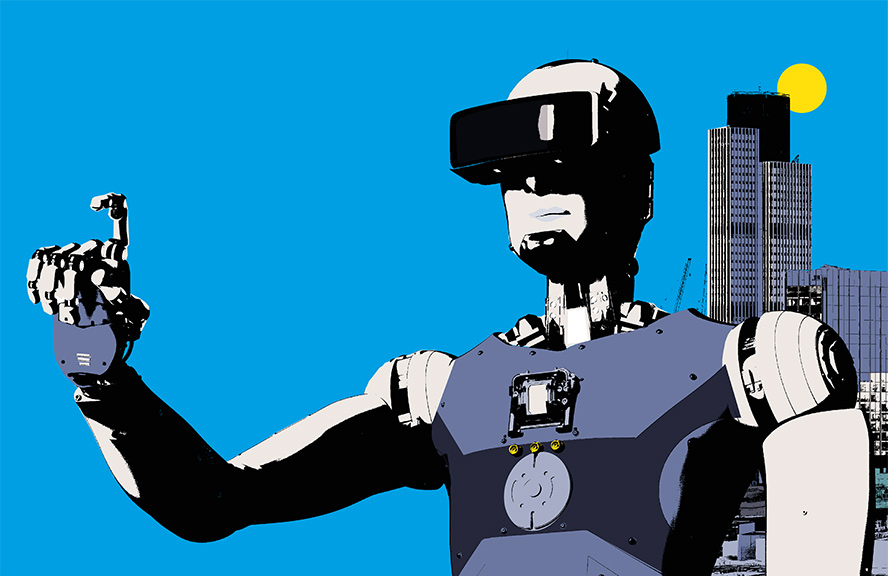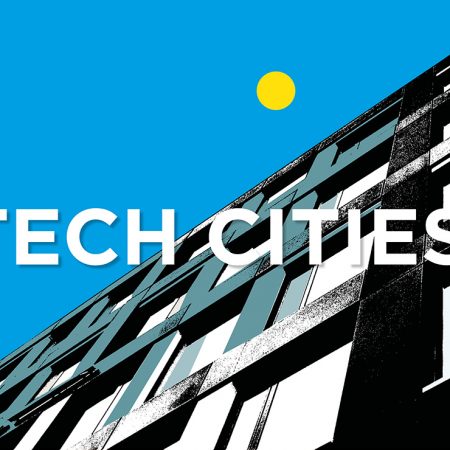Deep Tech covers a number of disparate advanced technologies – from robotics to artificial intelligence, from big data to nanotechnology, and from virtual reality to internet of things.
It’s hard to overstate the importance of Deep Tech to future technological success and development. As such, many cities have seen growth in this sector, but which cities come out on top?
Savills Tech Cities Deep Tech Index
Source: Savills Research. Tech sector verticals: Artificial Intelligence & Machine Learning, Augmented Reality, Big Data, Internet of Things, Nanotechnology, Robotics & Drones, and Virtual Reality
Every day is a school day
The importance of clustering should not be overlooked for any start-up scene. For Deep Tech start-ups, their proximity to universities and institutes is one of the key factors for success. Not only do these top-class universities help promote R&D, but they also offer superlative talent pools.
The best Deep Tech cities have highly-ranked STEM universities
Source: Savills Research using QS World Rankings
Seoul, which sits in 4th place, has 7 universities that are in the QS Global Top 500 STEM universities – 3 of which are in the top 100. The local government has taken advantage of this proximity to cutting-edge research; the AI Yangjae hub, a Seoul City government initiative, has operated since 2017 where AI graduate schools, research institutes, and businesses can work together. Cambridge – in 16th – sees a similar environment: it’s home to the world-renowned University of Cambridge as well as Deeptech Labs, a VC fund, accelerator, and catalyst for Deep Tech business growth.
Taking the 3rd place on our Deep Tech index, London’s high-ranked universities draws many talented international students, providing a diverse talent base for start-ups. One of these top universities, Imperial College London, has an Institute for Deep Tech Entrepreneurship highlighting the business support that Deep Tech start-ups have in this city.
Whilst Munich and Berlin may not take the top spots on the index, 17th and 25th respectively, we expect to see a lot of activity in these cities; not only are they home to top STEM universities, but the German government has recently announced a €1 billion Deep Tech and Climate fund.
How to predict the future? Look to the past
San Francisco is synonymous with tech start-up success and it appears to be keeping this reputation – coming in 2nd on our index. Most recently the San Francisco-based start-up OpenAI released ChatGPT 3.0 to extensive media coverage and sending shockwaves throughout nearly every industry regarding the power of AI; Microsoft has since invested $10B into OpenAI.
According to Pitchbook data, from October 1st 2019 to September 30th 2022, Deep Tech start-ups in San Francisco raised over US$35B through almost 1,300 deals.
This history of tech start-up successes provides a plethora of expertise and know-how for up-and-coming start-ups solving tomorrow’s problems.
We see a similar pattern in Bristol – 12th in our ranking. In the 1970s, Fairchild Semiconductor International set up offices in Bristol and has since lead to a subtle growth of the tech sector in the ‘Silicon Gorge’. More recently, in 2018, Dr Harry Destecroix sold his start-up, Econic Technologies, for $800M. He has since started Science Creates ventures – a Bristol-based incubator and VC fund.
A penny saved is a penny earned
Deep Tech, as previously stated, is focussed on cutting-edge and innovative technologies which often means high costs. The tech cities with great future potential, therefore, are emerging, lower-cost centres, such as Raleigh-Durham, Dallas, Denver, and Bristol. This trend is especially strong in the US due to the ease of movement of capital and labour between cities and regions with such varied costs of living.
Dallas and Raleigh-Durham – 7th and 12th – both see relatively low costs of living whilst also benefiting from a number of regional and global headquarters of major multinationals. Dallas is home to AT&T, Texas Instruments, and Capital One, whilst IBM, Cisco Systems, and GlaxoSmithKline are hosted in Raleigh-Durham.
On the other end of the cost of living scale is New York – our top contender. Whilst New York is expensive, its reputation precedes it. Not only does the Big Apple provide start-ups with access to global multinationals as potential clients and talent pools, but also to venture capital and private equity firms.
Big Opportunities for Big Data
Beijing, the Chinese capital – along with Shanghai, Shenzhen, and Hangzhou – is a major player in Deep Tech. The city sits sixth in our index.
Beijing’s position is bolstered by its high levels of VC funding, second only to Silicon Valley, and by having eight universities that feature in the QS Global Top 500 STEM universities. These provide the pool of top talent that Deep Tech requires, as well as research and opportunities for businesses to collaborate with university researchers.
China’s sheer scale – and, when it comes to Big Data, the scale of its record-keeping – puts it on a level with the US in a global comparison. China’s adoption of mobile technology and development of super-apps such as Weibo, provide countless Big Data opportunities in the country. With that being said, it is important to note that there has been a recent tightening in Chinese government policy with regards to the reach of tech companies.
Depths of Deep Tech still to be reached
With ever increasing interest in AI and Machine Learning across almost all industries, Deep Tech seems to be a promising sector. Furthermore, our adoption of e-commerce has strengthened demand for robotics, drones and Internet of Things. As always, demand will remain strong for cutting edge and innovative technology that has the potential to take businesses to the next level.
Methodology:
Our 2023 Tech Cities ranking measure a city’s business environment, tech environment, city buzz & wellness, talent pool, and its strength and depth across different tech sub sectors:
*for each of the 11 Tech Sub sectors (AgTech & FoodTech, CleanTech & ClimateTech, Deep Tech, E-Commerce, FinTech, Industrial Tech, Life Sciences & HealthTech, MediaTech, MobilityTech, Software, SpaceTech). These are aggregated to form our overarching Tech Cities index.



